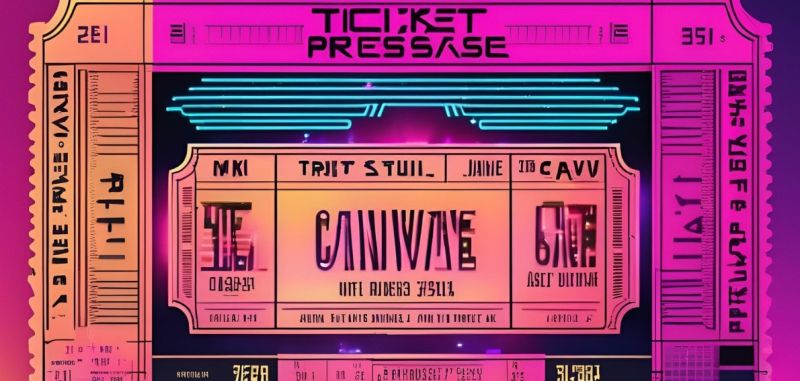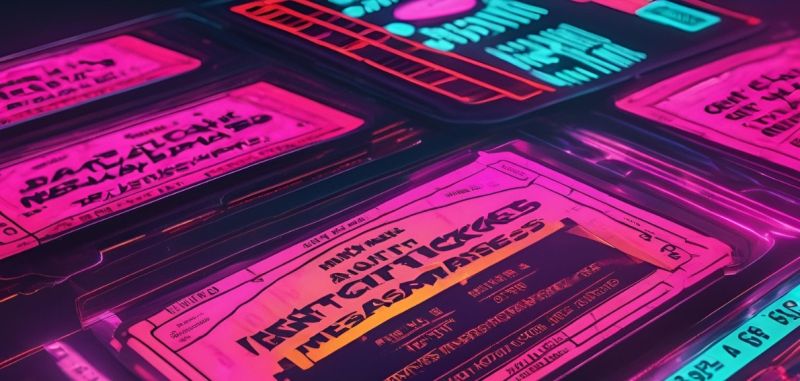Event organizers face numerous challenges in today’s digital age, but few are as persistent and problematic as ticket scalping.
This practice of reselling event tickets at inflated prices not only frustrates loyal fans but can significantly damage an event’s reputation and long-term success. Understanding and implementing effective anti-scalping measures to combat ticket scalping has become crucial for event organizers who wish to maintain fair ticket access and protect their event’s integrity.
Also Read: Top Event Ticketing Platforms: Which One’s Best for Your Events
Understanding Ticket Scalping

Ticket scalping is a widespread issue in the event industry, where individuals or groups purchase event tickets with the intention of reselling them at inflated prices. This practice can lead to significantly higher ticket prices, making it difficult for genuine fans to afford or find tickets.
Scalping can be carried out by individuals or organized groups, and it is frequently facilitated by the use of automated bots. These bots can purchase large quantities of tickets within seconds of their release, creating an artificial scarcity that drives up prices and reduces availability for genuine fans.
Also Read: Anti Scalping for Event Management: Why These Measures Are Essential – A Complete Guide
The Impact of Ticket Scalping on Ticket Prices
Ticket scalping has a significant impact on ticket prices, leading to inflated prices that can be detrimental to genuine fans. When scalpers use automated bots to purchase large quantities of tickets, it creates an artificial scarcity that leaves genuine fans struggling to find tickets.
This not only results in a negative experience for those who are unable to secure tickets but also leads to a significant loss of revenue for event organizers. The resale of these tickets at inflated prices creates an unfair ticket pricing environment, making it difficult for fans to purchase tickets at face value.
1. Personalized Ticketing: Creating Individual Accountability

Preventing ticket scalping stands as one of the most effective weapons in the fight against scalping. This approach requires attendees to provide detailed personal information during the purchase process, including their name, email address, and sometimes even photo identification. Some advanced ticketing systems have begun incorporating the ticket holder’s photo directly onto the digital ticket, creating an additional layer of security.
This personalization serves multiple purposes: it makes it substantially more difficult for scalpers to resell tickets, reduces the risk of counterfeit tickets entering circulation, and provides legitimate attendees with greater confidence in their purchase. The personal touch also enhances the overall customer experience, making attendees feel more valued and connected to the event before it even begins.
2. Purchase Limitations: Preventing Bulk Buying and Ticket Scalping

Bulk purchases represent another crucial strategy in combating scalping. By implementing strict limits on the number of ticket purchases an individual can make in a single transaction, organizers can effectively prevent scalpers from acquiring large quantities of tickets for resale.
A common approach is to restrict purchases to two or four tickets per transaction, ensuring a more equitable distribution among genuine fans. This strategy proves particularly effective when combined with sophisticated monitoring systems that can track purchasing patterns across multiple transactions, helping identify potential scalping activity before it becomes problematic.
3. Dynamic Pricing and Non-Transferable Tickets

Dynamic pricing and non-transferable tickets offer a modern solution to the scalping challenge. Dynamic pricing systems automatically adjust ticket prices based on real-time demand, effectively reducing the profit margin for potential scalpers while maximizing revenue for event organizers. When tickets increase in price as demand rises, scalpers find it more difficult to maintain their desired profit margins.
Non-transferable tickets, which require the attendee’s name to match their identification at entry, create an additional barrier to scalping activities. This approach, while potentially more complex to implement, has proven highly effective in ensuring fair ticket pricing and that tickets reach their intended audience at fair prices.
4. Fan Presales and Verified Ticket Resale Solutions

Fan presales and verified resale channels provide a balanced approach to ticket distribution and resale, helping to prevent ticket scalping. By offering early access to tickets through fan clubs, newsletter subscriptions, or loyalty programs, organizers can reward their most dedicated supporters while reducing the number of tickets available to potential scalpers.
Additionally, partnering with legitimate resale platforms that enforce price caps and verify seller authenticity helps create a controlled secondary market. These platforms provide a safe and fair environment for ticket resale when circumstances prevent original purchasers from attending, while maintaining reasonable price limits that discourage profiteering.
Also Read: How to Use Loyalty Presales: A Guide to Boost Ticket Sales
5. Active Monitoring and Enforcement Against Ticket Scalping Bots

Ticket scalping bots are a significant concern in the ticketing industry, and active monitoring and policy enforcement complete the anti-scalping strategy framework.
Successful event organizers maintain vigilant oversight of secondary markets, employing sophisticated technology to detect unusual purchasing patterns and potential scalping activity. Clear anti-scalping policies, backed by consistent enforcement actions such as ticket cancellation for verified scalpers, send a strong message about the organization’s commitment to fair ticket access.
These policies often include monitoring social media and online marketplaces for unauthorized resales, as well as implementing technical solutions to detect and prevent automated purchasing systems or bots from accessing ticket sales.
6. Protecting Your Event’s Reputation

Protecting your event’s reputation is crucial in the digital age, where social media amplifies customer dissatisfaction. Negative experiences with scalped tickets can quickly become viral stories that damage brand reputation. The use of scalping bots can severely damage an event’s reputation by making it difficult for genuine fans to purchase tickets.
By prioritizing anti-scalping efforts, event organizers can create a fairer, more accessible event while building stronger relationships with their audience base. Implementing and clearly communicating anti-scalping measures can help build trust with customers and protect the event’s reputation.
7. Implementation and Benefits

The implementation of these anti-scalping practices requires careful planning and coordination by the event organizer across multiple stakeholders, including ticketing partners, security teams, and customer service representatives.
However, the benefits far outweigh the operational challenges. Events that successfully combat scalping often see increased customer satisfaction, stronger brand loyalty, and improved reputation within their industry. Furthermore, when fans know they can purchase tickets at fair prices through legitimate channels, they’re more likely to become repeat attendees and recommend the event to others.
Future of Anti-Scalping Measures

Modern technology continues to evolve, providing event organizers with increasingly sophisticated tools to combat scalping. From blockchain-based ticketing systems to artificial intelligence that can predict and prevent scalping behavior, the future of anti-scalping measures looks promising. However, the fundamental principles of personal verification, purchase limitations, dynamic pricing, fan prioritization, and active enforcement remain crucial to securing the ticket purchasing process.
Also Read: Music Event Technology Trends 2025: Innovations Shaping the Future of Live Music Experiences
Conclusion
While purchasing event tickets presents a significant challenge to event organizers due to ticket scalping, implementing a comprehensive anti-scalping strategy can effectively protect both the event’s interests and its attendees.
By combining personalized ticketing, purchase limitations, dynamic pricing, fan presales, and active enforcement measures, organizers can create a more equitable and enjoyable ticket-buying experience for all stakeholders. These practices not only combat scalping but contribute to the overall success and sustainability of events in today’s competitive entertainment landscape.
Frequently Asked Questions
What is personalized ticketing and how does it prevent scalping?
Personalized ticketing requires attendees to provide personal information during purchase, including name, email, and sometimes photo ID. Advanced systems incorporate the ticket holder’s photo onto digital tickets, making unauthorized resale difficult. This system creates barriers for scalpers while reducing counterfeit risks. Staff can verify ticket holder identity at entry points, ensuring tickets are used by their intended purchasers and deterring bulk buying by scalpers.
How do dynamic pricing and non-transferable tickets work together to combat scalping?
Dynamic pricing adjusts ticket prices based on real-time demand, while non-transferable tickets require ID matching at entry. This combination reduces scalpers’ profit margins by increasing prices as demand rises and preventing unauthorized resales. The system ensures tickets reach genuine fans at fair prices while maintaining organizer control over inventory, though it requires more complex implementation.
What role do fan presales and verified resale channels play in preventing scalping?
Fan presales provide priority access to loyal customers through fan clubs and loyalty programs, limiting tickets available to scalpers. Verified resale platforms offer regulated spaces for legitimate reselling with price caps and seller verification. This approach maintains ticket accessibility for genuine fans while providing a secure method for necessary resales through authorized channels.
How can event organizers effectively monitor and enforce anti-scalping policies?
Organizers should use technology to detect unusual buying patterns and implement clear anti-scalping policies with consistent enforcement. This includes monitoring social media and online marketplaces for unauthorized resales, preventing automated purchases, and coordinating between ticketing partners and security teams. Ticket cancellation for verified scalpers serves as a strong deterrent.
What future technologies are emerging to combat ticket scalping?
Blockchain-based ticketing systems provide transparent ownership records, while AI and machine learning help predict and prevent scalping behavior. These technologies work alongside traditional anti-scalping measures like personal verification and purchase limitations. While technology advances, maintaining multiple security layers remains essential for preventing unauthorized resales.
You May Also Like:
How to SEO Optimize Your Music Event for Search Engines
Boost Your DJ Career: Twitch Streaming Guide for Music Pros
Booking Underground Music: Balancing Club Profits and Artistic Integrity



 19th May 2025
19th May 2025